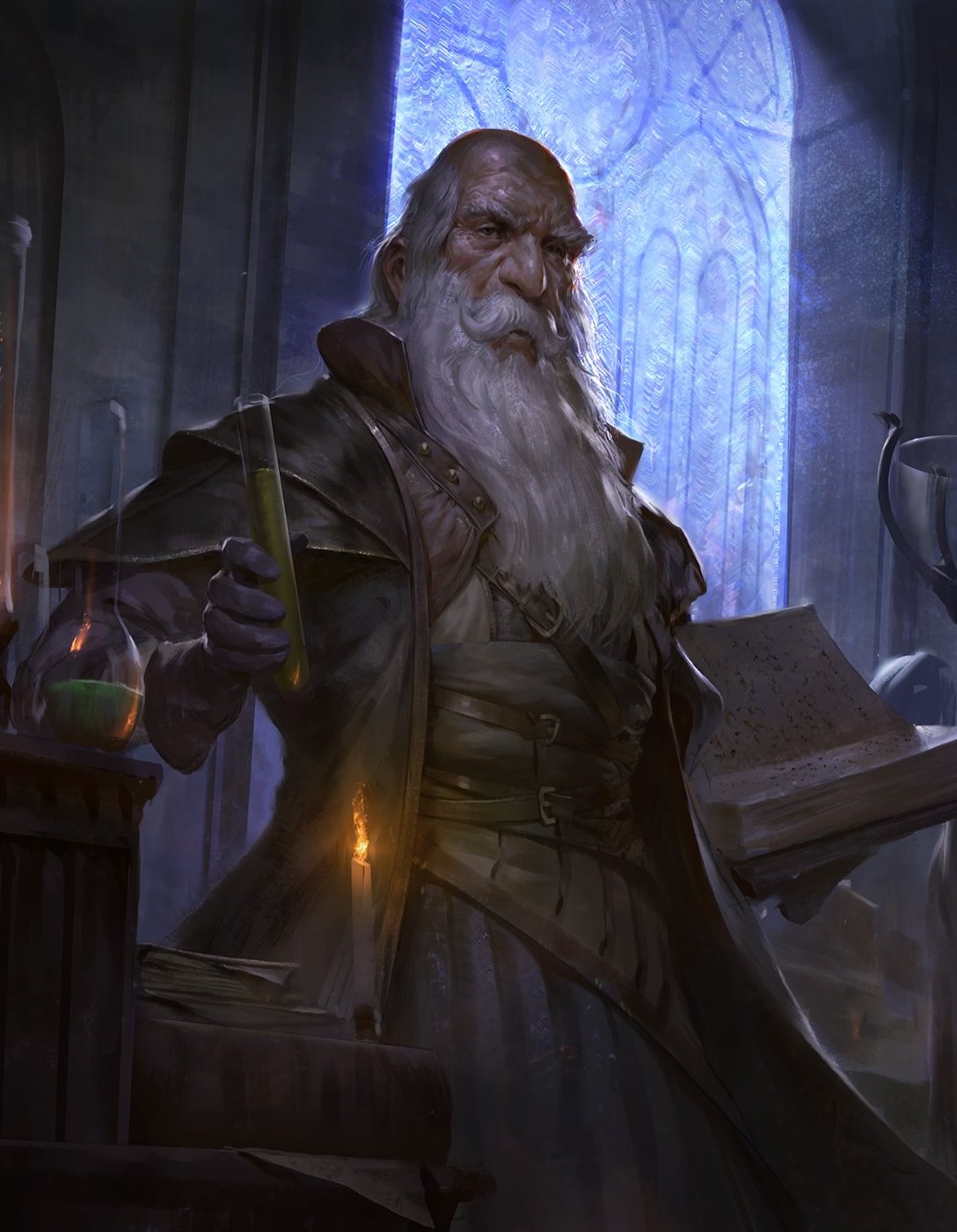
Scholar
A human general, clad in gleaming armour, studies the map on the table in front of him, covered in figurines that represent units of his soldiers and the invading orcs. He consults a leather-bound journal filled with notes he’s made on the enemy’s tribe, their customs and battle tactics, and he moves two pieces confidently forward.
A wild haired dwarf stands at the head of a long caravan. She surveys the valley below and plots their course through the untamed wild. Unrolling a sheaf of parchment, she sketches in new features on an expertly drawn map and then motions for the caravan to follow, leading them deeper into unknown territory in search of treasure and knowledge.
Kneeling at the side of a fallen comrade, a gnome rapidly applies a tincture and bandage. Her ally’s eyes flutter open and she helps him back to his feet before turning her attention to the nearby troll. A twirl and strike from her quarterstaff befuddles the foe, leaving it vulnerable for her ally’s next attack.
A smirk pulls at the corner of the half-elf’s mouth as he surveys the overgrown ruins on the hilltop. Though no doubt filled with traps and dangerous beasts, the promise of lost reassure and forgotten knowledge hum onward. No trinket or secret, no matter how old, would evade his thorough investigation.
Experts in the Ordinary
While many sages and academics dedicate their great minds to unravelling the mysteries of the divine or the arcane, scholars focus their intellectual efforts on the mundane, the physical world around them and all the wonders it holds.
This curiosity manifests in different ways. Some scholars are more interested in the workings of the bod, learning how every part serves the whole so that they can better understand and heal it. Others become life-long students of the art of war, devising ways to dominate the battlefield with superior tactics rather than superior brawn. And some are more concerned with the world itself, keen to seek out every corner of every ruin, to commune with foreign peoples, and discover exotic beasts and the wild lands that are their homes.
World Wise
For the truly curious, the adventuring life is the only way to expand one’s horizons of knowledge and build one’s skills. Any scholar worth his salt will quickly agree that books and laboratories are excellent avenues for learning, but with no book and no beaker contain the knowledge still waiting to be discovered beyond the frontier or in the crucible of battle. The scholar believes that every student reaches a point where the most effective path to higher learning is hands-on experience. The world is full of discoveries that waiting to be made.
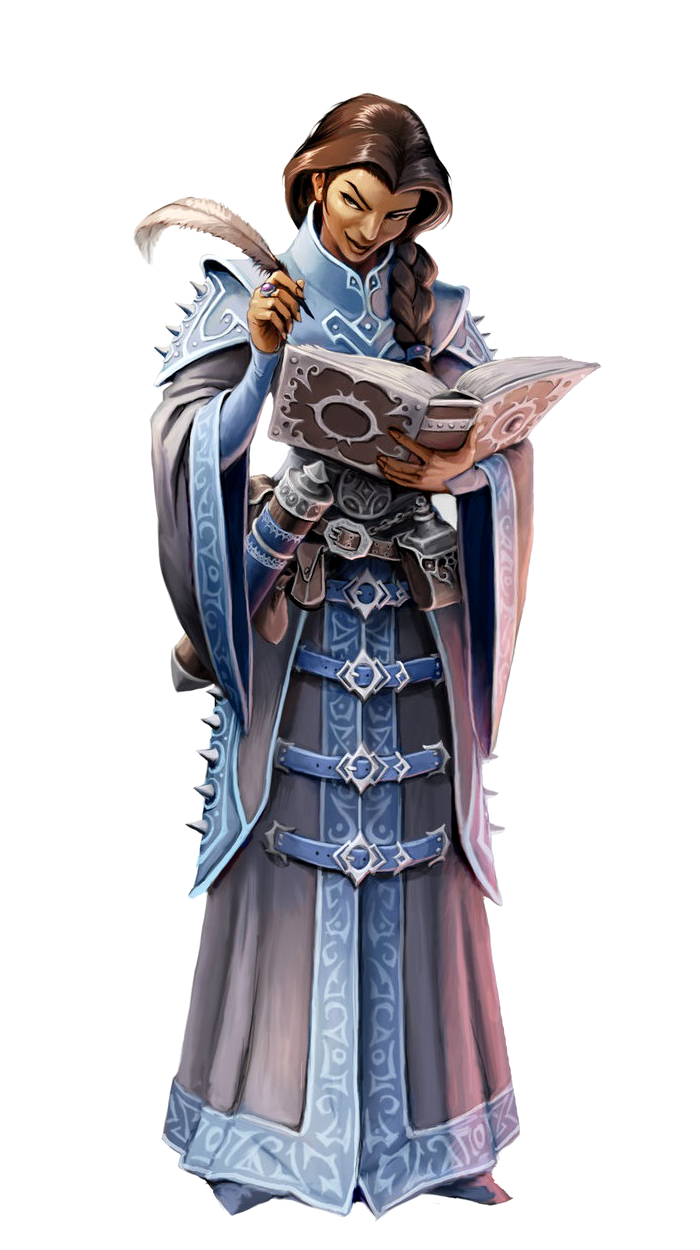
Creating a Scholar
As you create your scholar character, consider your motivations for becoming a disciple of the world as opposed to a student of the so-called higher mysteries. Did you grow up hearing tales of explorers charting the unknown? Perhaps a skilled healer managed to cure a family member of a terrible disease when the local priest could not? Were you raised the child of great warriors and lacked the brawn to follow in their footsteps, but had the brains to make up the difference?
Where did your path to learning begin? Did you have a brilliant mentor who passed along his knowledge? Did you sneak into the royal library to pore over thick tomes recounting ancient history? Maybe you became a student at a prestigious university devoted to expanding knowledge of all kinds?
What prompted you to leave your old life behind and become an adventurer? Are you having trouble adjusting after a life in academia? Or do you finally feel a sense of freedom? What kind of knowledge are you hoping to discover in your travels?
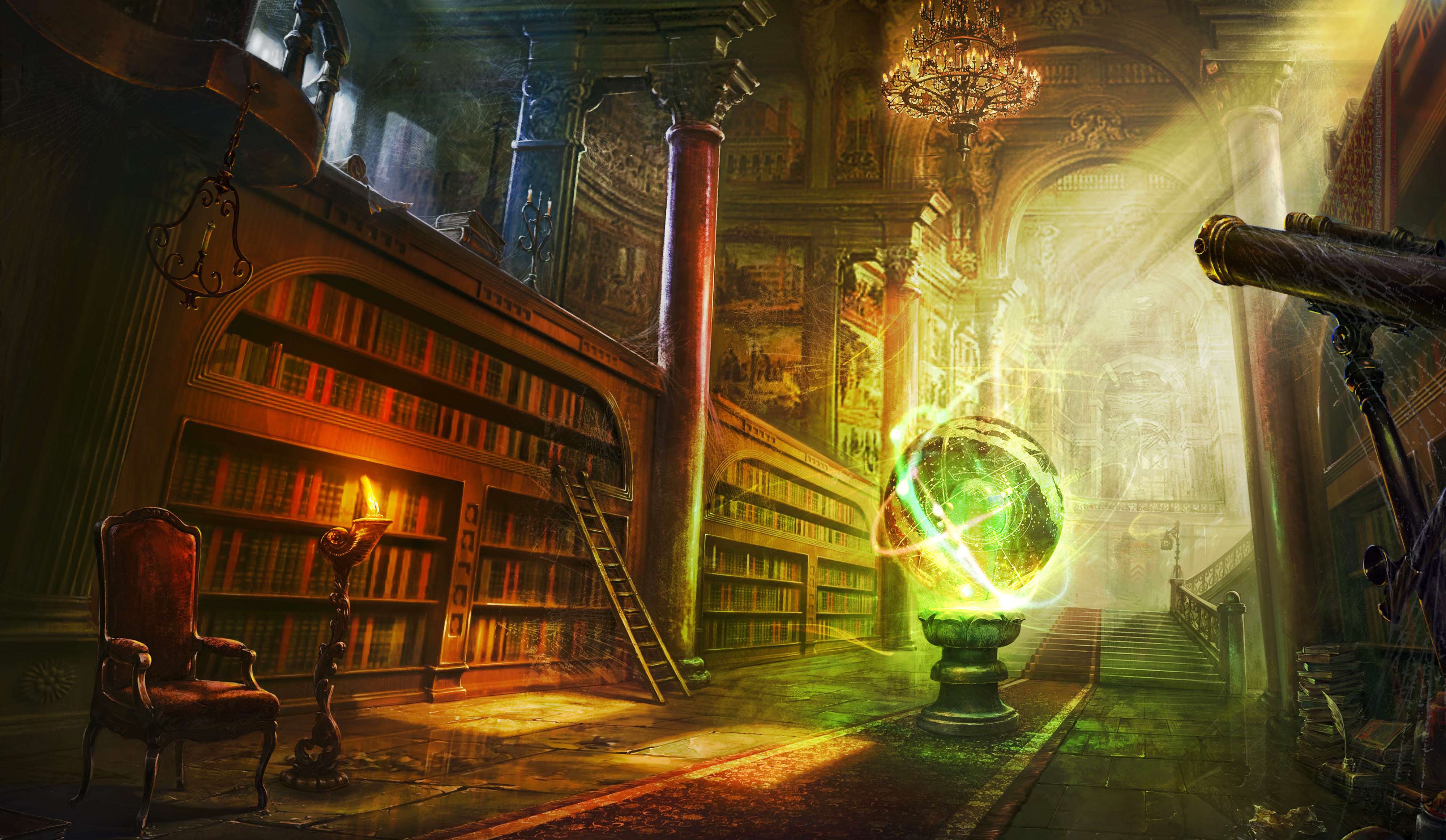

The Scholar
| Level | Proficiency Bonus | Practica Known | Insight Die | Features |
|---|---|---|---|---|
| 1st | +2 | ─ | d4 | Combat Insight, Scholastic Pursuit |
| 2nd | +2 | 2 | d4 | Practica, Expertise |
| 3rd | +2 | 2 | d4 | Pursuit Feature |
| 4th | +2 | 2 | d4 | Ability Score Improvement |
| 5th | +3 | 3 | d6 | Boundless Insight, Field Research |
| 6th | +3 | 3 | d6 | Advanced Combat Insight |
| 7th | +3 | 3 | d6 | Pursuit Feature |
| 8th | +3 | 4 | d6 | Ability Score Improvement |
| 9th | +4 | 4 | d8 | Improved Expertise |
| 10th | +4 | 4 | d8 | Ability Score Improvement |
| 11th | +4 | 5 | d8 | Incisive Strike |
| 12th | +4 | 5 | d8 | Ability Score Improvement |
| 13th | +5 | 5 | d8 | Pursuit Feature |
| 14th | +5 | 6 | d8 | Words of Wisdom |
| 15th | +5 | 6 | d8 | Analytical Mind |
| 16th | +5 | 6 | d8 | Ability Score Improvement |
| 17th | +6 | 7 | d10 | Improved Combat Insight (d10) |
| 18th | +6 | 7 | d10 | Pursuit Feature |
| 19th | +6 | 7 | d10 | Ability Score Improvement |
| 20th | +6 | 8 | d10 | True Genius |
Quick Build
You can make a scholar quickly by following these suggestions. First, make Intelligence you highest ability score, followed by Dexterity (some scholars who focus on melee combat could make Strength higher than Dexterity). Second, choose the sage background.
Class Features
As an scholar, you gain the following class features.
Hit Points
Hit Dice: 1d8 per scholar level
Hit Points at 1st Level: 8 + your Constitution modifier
Hit Points at Higher Levels: 1d8 (or 5) + your Constitution modifier per scholar level after 1st
Proficiencies
Armour: Light armour
Weapons: Simple weapons, hand crossbows, heavy crossbows, rapiers, shortswords
Tools: Choose any two
Saving Throws: Constitution, Intelligence
Skills: Choose four from Acrobatics, Athletics, Animal Handling, History, Insight, Investigation, Medicine, Nature, Perception, and Survival
Equipment
You start with the following equipment, in addition to the equipment granted by your background:
- (a) leather armour, or (b) scale mail (if proficient)
- (a) a rapier, (b) a shortsword, or (c) any martial weapon (if proficient)
- (a) an scholar’s pack or (b) a explorer’s pack
- A healer's kit (physician pursuit only)
Alternatively, you can purchase your starting equipment with a starting wealth of 4d4 x 10gp.
Combat Insight
Beginning at 1st level, you know how to use your quick wits to gain an edge in combat. You learn gambits that are fuelled by special dice called insight dice. Gambits. You begin knowing four gambits, listed below. You learn more as you gain levels in this class.
Insight Die. You have a number of insight dice equal to your Intelligence modifier (a minimum of 1), which are d6s.
An insight die is expended when you use it, and you regain all expended insight dice when you finish a long rest. The value of your insight die increased by one dice level at 5th, 9th, 17th.
Saving Throws. Some of your gambits require your target to make a saving throw to resist the gambit's effects. The saving throw DC is calculated as follows:
- Gambit save DC = 8 + your proficiency bonus + your Intelligence modifier
Agitating Attack
When you hit a creature with a weapon attack, you can spend one insight die to attempt to force the creature to lose focus. You roll an insight die and add it to the attack’s damage roll, and the target must make a Wisdom saving throw. On a failed save, the target has disadvantage on attack rolls until the start of your next turn.
Defensive Posture
You can spend one insight die and take the Dodge action as a bonus action. If a creature misses you with an attack before the start of your next turn, you can use your reaction to make a weapon attack against an enemy in range, adding your insight die to the damage roll of the attack.
Foiling Strike
When an ally takes an action that forces a creature to make a Strength, Dexterity, or Constitution saving throw, you can spend one insight die and use your reaction to make a weapon attack against the creature if it is in range. Add an insight die to the damage roll. If the attack hits, the target has disadvantage on the saving throw.
Scholastic Pursuit
At 1st level, you choose your intellectual pursuit on which you will focus your efforts. Choose Tactician, Physician, or Explorer, detailed at the end of the class description. The discipline you choose grants you features at 1st level and again at 3rd, 7th, 13th, and 18th level.
Practica
Your studies have exposed you to research and theory on any number of subjects, but applying that knowledge to the real world requires an extra level of dedication.
Beginning at 2nd level, you master one practicum of your choice, your practica options are detailed at the end of the class description. When you gain certain scholar levels, you can master new practica of your choice, as shown in the Practica Known column of the Scholar table. Additionally, when you gain a level in this class, you can choose one of the practica you know and replace it with another for which you meet the requirements.
Expertise
At 2nd level, you choose two of your skill proficiencies. Your proficiency bonus is doubled for any ability check you make that uses any of the chosen proficiencies. At 9th level, you can choose another two skill proficiencies to gain this benefit.
Ability Score Improvement
When you reach 4th level, and again at 8th, 10th, 12th, 16th, and 19th level, you can increase one ability score of your choice by 2, or you can increase two ability scores of your choice by 1. As normal, you can’t increase an ability score above 20 using this feature.
Boundless Insight
Beginning at 5th level, you regain all of your expended insight die when you finish a short rest or long rest.
Field Research
Also at 5th level, if you spend at least 1 minute observing or interacting with another creature outside combat, you can learn certain information about its capabilities. Choose a reference creature of the same type that you have seen, and the DM tells you if the creature you are researching is equal, superior or inferior to the reference creature in regard to two of the following characteristics of your choice:
- Strength score
- Dexterity score
- Constitution score
- Intelligence score
- Armor Class
- Maximum hit points
- Total class levels (if any)
Advanced Combat Insight
Starting at 6th level, your combat expertise is greater than before. You learn the following gambits:
Expose Vitals
When you make a weapon attack against a creature, you can expend an insight die to expose their weak points. You add your insight die to your attack roll against the target. If you hit, the next time that creature is damaged by an attack roll, that creature takes additional damage equal to the number you added to your original attack roll. This additional damage is of the same type as the triggering damage type.
Unsticky the Situation
When you fail a saving throw, you can spend an insight die to roll an insight die and add it the saving throw, potentially turning it into a success.
Incisive Strike
Starting at 11th level, when you hit a creature with a weapon attack, the creature takes extra damage equal to your Intelligence modifier (minimum of 1). You can only deal this extra damage once per round.
Words of Wisdom
Beginning at 14th level, you learn the Words of Wisdom gambit. When an ally is preparing to make a skill check, you can use an action to spend an insight die and analyse the situation, giving advice based on your observations.
You roll an insight die and add it to the allies attack roll. If you are proficient in the skill check your ally is making, add your proficiency bonus to the roll also. If multiple allies will be attempting the same feat, they may each add this bonus to their skill checks.
Analytical Mind
At 15th level, you can apply your Intelligence modifier instead of your Wisdom modifier to Wisdom ability checks in which you are proficient and, if you are still proficient in them, to Wisdom saving throws.
True Genius
At 20th level, you embody true genius. Your Intelligence score increases by 4 and your maximum Intelligence increases by 4 also.
You are also capable of moments of perfect insight, wherein the path to success becomes clear even when the odds are stacked against you. On a failed ability check, you can treat the d20 as a 20. Once you use this feature, you can’t use it again until you finish a long rest.
Pursuits
Different scholars choose different disciplines to channel their intellectual prowess. The pursuit you choose reflects this focus.
Tactician
Scholars of the Tactician pursuit have focused their minds on the art and skill of combat. By honing their techniques and studying their enemies, Tacticians become formidable presences on any battlefield.
Bonus Proficiency
At 1st level, you gain proficiency with medium armour, shields and martial weapons.
Fighting Style
You adopt a particular style of fighting as your specialty. Choose one of the following options. You can’t take a Fighting Style option more than once, even if you later get to choose again.
Archery
You gain a +2 bonus to attack rolls you make with ranged weapons.
Defence
While you are wearing armour, you gain a +1 bonus to AC.
Duelling
When you are wielding a weapon in one hand, and no other weapons, you gain a +2 bonus to damage rolls with that weapon.
Great Weapon Fighting
When you roll a 1 or 2 on a damage die for an attack you make with a melee weapon that you are wielding with two hands, you can reroll the die and must use the new roll, even if the new roll is a 1 or a 2. The weapon must have the two-handed or versatile property for you to gain this benefit.
Protection
When a creature you can see attacks a target other than you that is within 5 feet of you, you can use your reaction to impose disadvantage on the attack roll. You must be wielding a shield.
Two-Weapon Fighting
When you engage in two-weapon fighting, you can add your ability modifier to the damage of the second attack.
Study Foe
At 7th level, you learn the study foe gambit. You can expend an insight as a bonus action to begin studying a creature you can see. You analyse its movements and fighting style in order to avoid its attacks.
The studied creature has disadvantage on attack rolls that target only you. When the creature attempt to take an action, you can use your reaction to make a weapon attack against it. If the attack hits, you add an insight die to the damage roll and the creature loses its action for the turn. The study foe effect then ends immediately. Otherwise the effect ends if you are incapacitated, when the creature dies or falls unconscious, or if you use this gambit on a different enemy, therefore making it so you can only study one enemy at a time.
Force Multiplier
At 13th level, you can observe the battlefield and relay instructions to your allies in order to shore up your weaknesses and exploit those of your enemies.
As an action, roll a number of d8s equal to your Intelligence modifier (minimum of 1), and distribute them among yourself and your allies. These dice last for one minute and can be consumed as a reaction to make an attack, adding the dice to the attack roll.
Alternatively, when the holder of a die is hit by an attack, then they can use their reaction to add the die to their AC for the triggered attack, potentially causing the attack to miss. Any unused dice are lost after one minute.
Once you use this feature, you can't use it again until you finish a short or long rest.
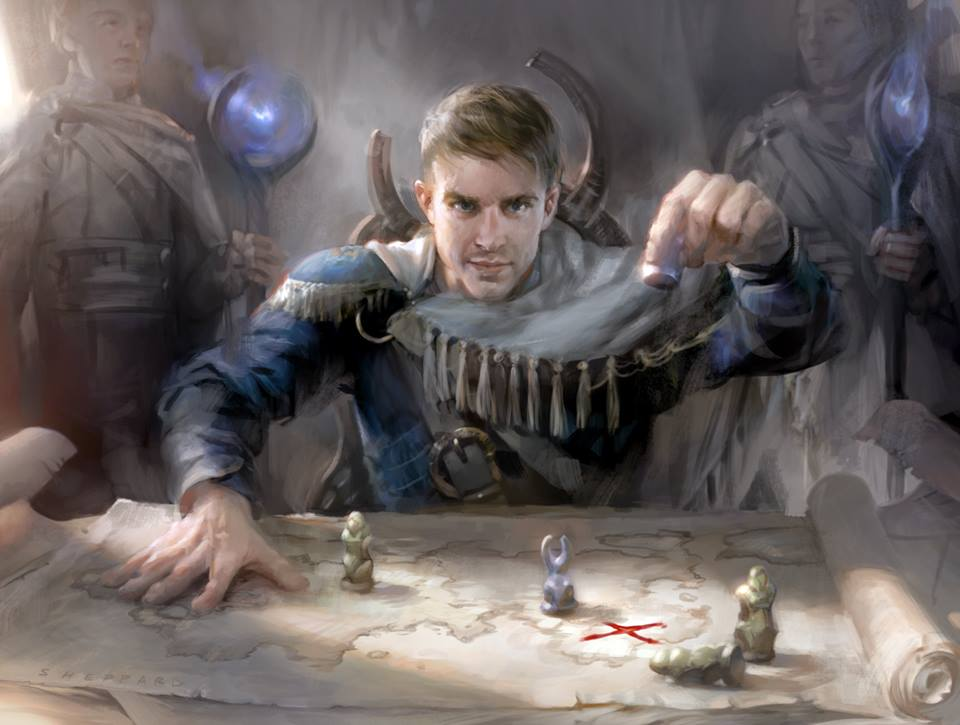

Tenacious Mind
Starting at 18th level, when you roll initiative and have 1 or less insight die remaining, you regain 2 insight die.
An addition, you gain immunity to psychic damage, as well as the charmed, frightened, and stunned conditions.
Explorer
Adepts who choose the Explorer pursuit exemplify adaptability. Whether plumbing the depths of a dungeon, making contact with an unknown people, or leaping into battle, the Explorer comes armed with the worldly wisdom to best handle the situation.
Bonus Proficiencies
At 1st level, you gain proficiency with either cartographer's tools and land vehicles or navigator's tools and water vehicles. You also gain proficiency in two martial weapons of your choice and learn two additional languages.
Adaptable
At 3rd level, you can recalibrate and refocus your mind to address the task and environment at hand. You learn one additional practicum.
Whenever you finish a short or long rest, you can replace this bonus practicum with another for which you meet the requirements.
Jack of All Trades
At 7th level, you can add half your proficiency bonus (rounded down) to any ability check you make that doesn’t already include your proficiency bonus.
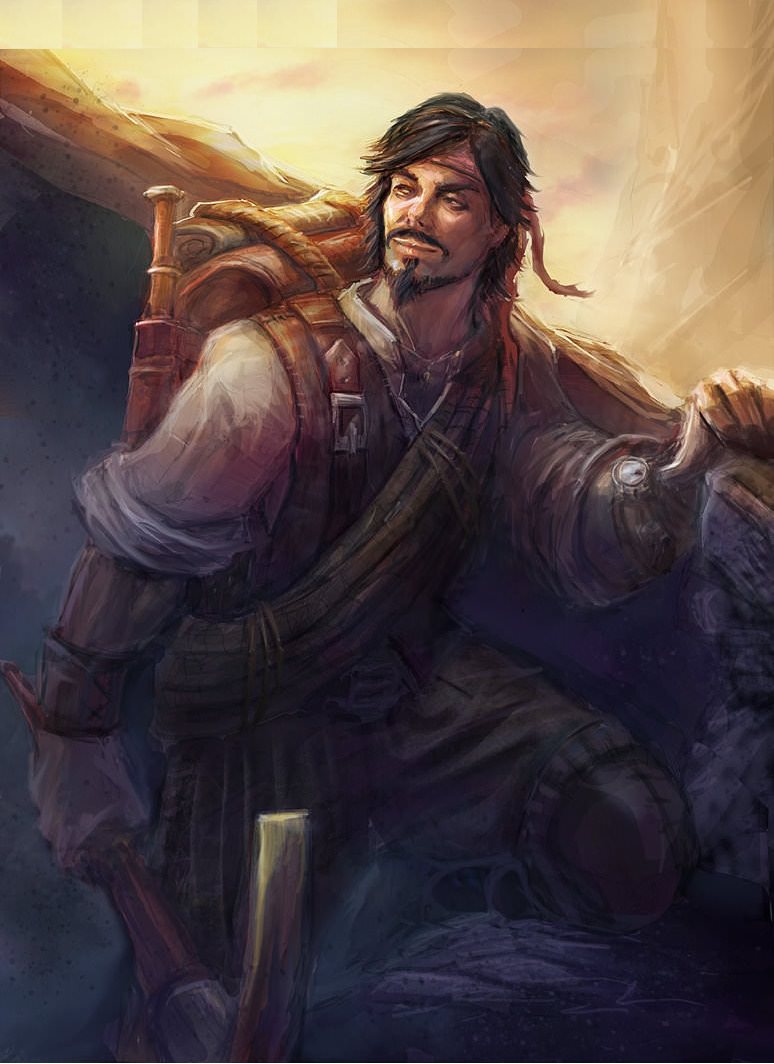

Exotic Technique
At 13th level, you learn the Exotic Technique gambit. When you hit a creature with a weapon attack, you can expend one insight die to stun the enemy with something it's never seen before.
You add the insight die to the damage's roll and the target can't take reactions until the end of your next turn, it must then make a Constitution saving throw. On a failure, the target is stunned until the end of your next turn.
Rapid Adjustment
At 18th level, you can use a bonus action to replace the bonus practicum currently granted by the adaptable feature with another one for which you meet the requirements. You can't use this feature again until you finish a long rest.
Chemist
The Chemist pursuit is chosen by scholars who make the study of chemistry their focus. They use their extensive knowledge to create chemical concoctions from metals, gases and liquids unknown to most.
Bonus Proficiency
When you choose this pursuit at 1st level, you gain proficiency in the Medicine skill and Alchemist's Supplies.
Chemical Concoctions
Also at 1st level when you choose this pursuit, you can use resources found around you to create chemical wonders. You know three chemical formula from the ones below, and you learn an additional one at 3rd, 7th, 13th and 18th level. You use your Gambit Save DC for any saving throws described in the following concoctions:
- Acidic Solution. As an action, you can throw a vial of acid at a creature, object or surface within 30 feet of you. The vial shatters on impact and the creature hit must succeed a Constitution saving throw or take acid damage equal to three Insight Die plus your Intelligence modifier. A successful save halves the damage. If used on an object, the damage is maximised. Starting at 13th level, on a failed save the target takes a -1 penalty to their AC until the end of your next turn.
- Antitoxin. When administered, the target can either end one poison currently effecting them, or gain resistance to poison damage until they next complete a long rest. Starting at 13th level, the target gains both effects of the antitoxin, as well as gaining advantage on saving throws against poison and disease.
- Chemical Fire. As an action, you hurl a bottle of searingly hot, very volatile liquid at a space within 30 feet of you. On impact, the bottle explodes in a 5-foot radius. Any creature must succeed on a Dexterity saving throw or take fire damage equal to two Insight Die. A successful save halves the damage. Starting at 13th level, on a failed save a target takes an addtional Insight Die of fire damage at the start of its next turn.
- Hallucinogenic Gas. As an action, you can throw a bottle of purple vapours to a space within 30 feet. On impact, the bottle shatters and the gas is released in a 5 foot radius for 1 minute. All creatures that start their turn within the area that can breathe must succeed a Wisdom saving throw or take psychic damage equal to one Insight Die plus your Intelligence modifier and have disadvantage on their next attack roll. A successful save halves the damage and negates this additional effect. Starting at 13th level, the damage of the gas increases to two Insight Die, instead of one, and the radius increases to 10 feet.
- Healing Elixir. When administered, this drought restores hit points to the target creature equal to two Insight Die + your Intelligence modifier. Starting at 13th level, a creature when ingests the healing elixir can end one of the following conditions on themselves: blinded, deafened, diseased, or poisoned.
- Instant Adhesive. As an action, you can throw a bottle of liquid adhesive that reacts and hardens almost instantly. You throw the bottle to a space within 30 feet. The bottle shatters on impact, releasing the adhesive in a 5 foot radius. All creatures within the radius must succeed a Strength saving throw or be restrained for 1 minute. The target can remake the save at the end of each of their turns - ending the restraining on a success. Starting at 13th level, the radius of the adhesive increases to 10 feet.
- Smog Cloud. As an action, you can throw a small canister of gases that mix and explode on impact. You throw the canister to a space within 30 feet - the canister creates a 10-foot-radius sphere of fog centered on a point within range. The sphere spreads around corners, and its area is heavily obscured, It lasts for 1 minute or until a wind of moderate or greater speed (at least 10 miles per hour) disperses it. Starting at 13th level, the radius of the cloud increases to 30 feet.
- Spark Canister. As an action, you can throw a canister containing a special metal that bursts into a blinding light when it reacts with certain chemicals. You throw the canister to a space within 30 feet, creating a blinding spray of sparks in a 10 foot radius. All creatures within the radius must succeed a Constitution saving throw or be blinded until the end of their next turn. Starting at 13th level, the radius increases from 10 feet to 20 feet, and allies within the radius are unaffected if you choose for them to be.
- Thunderball. As an action, you can throw this spherical canister to a space within 30 feet. The canister explodes in a 5 foot radius on impact, and all creatures within the area must succeed a Constitution saving throw or take thunder damage equal to one Insight Die + your Intelligence modifier and get pushed 5 feet back, then knocked prone. On a successful save, the damage is halved, and the target is not knocked prone. Starting at 13th level, the damage increases from one Insight Die to two and the knockback increases to 10 feet.
After a long rest, you can produce a number of concoctions equal to your Brew Score from your list of concoctions known. Your Brew Score starts at 4, and increases by 1 at 3rd, 7th, 13th and 18th level.
Other creatures cannot throw/administer your concoctions, as their knowledge of how to utilise the concoctions is limited. However, they can gain benefits/penalties from being a target of one.
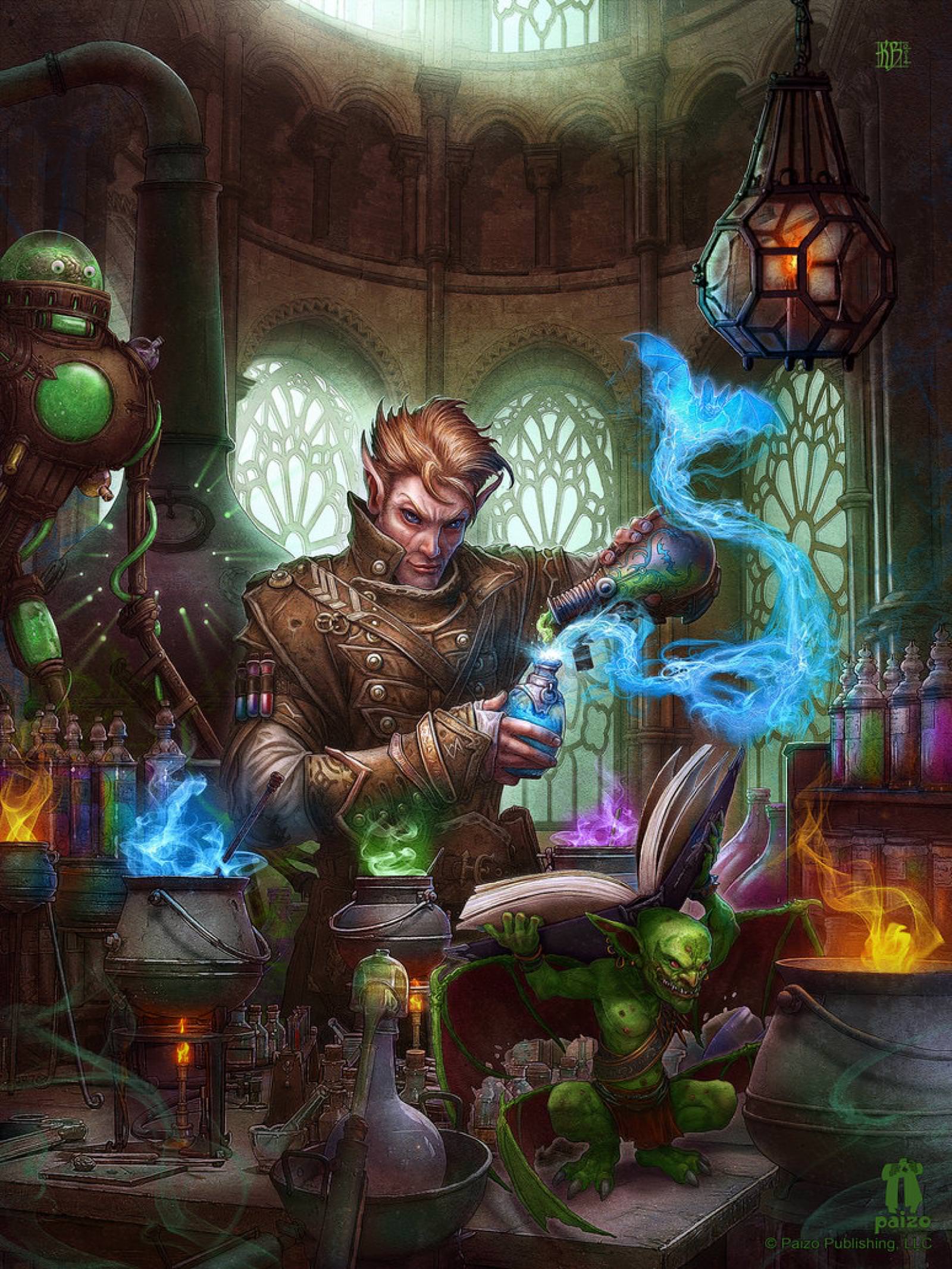

Concoctions lose their potency and become useless after 24 hours, or when you complete a long rest.
Medical Treatment
At 3th level, you can tend to a number of your party members equal to your Intelligence modifier during a short rest, in addition to yourself. Any creatures you tend to regains hit points equal to one insight die + your Intelligence modifier.
Resourceful Brewer
Also at 7th level, your masterful mind has allowed you to create concoctions in record time. During a short rest, you can make a number of concoctions equal to up to half your Intelligence modifier or up to your maximum number of concoctions (whichever is lower).
Potent Chemistry
Starting at 13th level, your concoctions are so potent that they can effect even those that would normally be unaffected.
Your concoctions ignore resistance to damage types.
Signature Concoction
Beginning at 18th level, one of your concoctions is so deep rooted into your mind, that you can brew it up in record time. Choose one of your known concoctions (this can include the one your learn at 18th level). When you complete a long rest, you can brew two copies of the chosen concoction which do not count against your Brew Score.
Additionally, during a short rest, you regain one copy of your signature concoction.
Psychologist
A politician draws upon their knowledge of the mind and its inner workings to become a master manipulator of the masses. They can get inside another person's head for good and for bad, bringing out the best or the worst in them.
Bonus Proficiencies
Starting at 1st level, when you select this pursuit, you gain proficiency with the Persuasion and Deception skills.
Befriend the Mind
Also at 1st level, your silvered tongue and honey laced words carry with them an almost unnatural charming effect. When you speak to a creature, you can spend 1 Insight Die to make a Charisma (Persuasion) check contested by the target's Wisdom (Insight) check.
The check automatically fails if you or your companions are fighting the target or any of it's companions. If the check succeeds, the creature is charmed by you for as long as it remains within 60 feet of you and for 1 hour thereafter. The effect ends early if you or any of your companions damage the target or any of it's companions. If the check fails, the creature is not charmed and becomes immune to this effect for the next 24 hours.
Taunt
At 3rd level, you can issue a taunt to a creature call their attention to you. You learnt he Taunt gambit.
As a bonus action, you taunt a creature within 60 feet that can see or hear you. Until the end of your next turn, the creature has disadvantage on all attacks made against creatures other than you. During this time, if the creature hits you with an attack, you may use your reaction to roll your Insight Die, reducing the damage by the amount rolled. The effect then ends.
Overwhelming Manipulation
At 7th level, while a creature is charmed by your Befriend the Mind feature, you may also attempt to make a suggestion to them, as if under the effects of the suggestion spell. You may only use this feature once before finishing a short or long rest.
Call to Victory
Starting at 13th level, you can call out to your allies, beckoning them to victory. As an action, choose a number of allies up to your Intelligence modifier within 60 feet who can hear you and who can understand you. Each of those creatures gains one Insight Die equivalent to your own.
Once, until the end of your next turn, a creature may roll their die and add the number rolled to one ability check, attack roll, or saving throw it makes. The creature can wait until after it rolls the d20 before deciding to use the Insight Die, but must decide before the DM says whether the roll succeeds or fails. Once the Insight Die is rolled, it is lost. A creature can have only one Insight Die at a time.
Once you use this feature, you cannot do so again until you finish a long rest.
Beguiling Presence
Starting at 18th level, you gain proficiency in Charisma saving throws and immunity to the charmed condition.
Adept Spellcasting
| Level | Cantrips | Esoteric Rituals | Maximum Ritual Level |
|---|---|---|---|
| 1st | 3 | – | – |
| 2nd | 3 | – | – |
| 3rd | 3 | 2 | 1st |
| 4th | 4 | 2 | 1st |
| 5th | 4 | 3 | 1st |
| 6th | 4 | 3 | 1st |
| 7th | 5 | 4 | 2nd |
| 8th | 5 | 4 | 2nd |
| 9th | 5 | 4 | 2nd |
| 10th | 6 | 5 | 2nd |
| 11th | 6 | 5 | 2nd |
| 12th | 6 | 5 | 2nd |
| 13th | 6 | 6 | 3rd |
| 14th | 6 | 6 | 3rd |
| 15th | 6 | 6 | 3rd |
| 16th | 7 | 6 | 3rd |
| 17th | 7 | 7 | 4th |
| 18th | 7 | 7 | 4th |
| 19th | 7 | 7 | 4th |
| 20th | 7 | 7 | 4th |
In addition, characters affected by your Call to Victory gain two Insight Die instead of one. Each die must be spent on a different ability check, attack roll or saving throw.
Adept
Combinding the intellect of the average scholar with a little magic aids the study of the world around them. Adepts utilise simple magics to devulge its interaction with the world around them.
Bonus Proficiencies
Starting when you choose this pursuit at 1st level, you gain proficiency in the Arcana and Nature skills.
Spellcasting
Through your studies, you have learnt some simple tricks and powers to aid you in your studies. Though not especially powerful, they are aid enough.
Cantrips. At 1st level, you know three cantrips of your choice from the following spell lists: bard, cleric, druid, sorcerer, wizard. You learn additional cantrips of your choice from these spell lists at higher levels, as shown in the Cantrips Known column of the Adept Spellcasting table.
Spellcasting Ability. Intelligence is your spellcasting ability for your spells. You use your Intelligence modifier whenever a spell refers to spellcasting ability. In addition, you use your Intelligence modifier when setting the saving throw DC for a spell you cast and when making an attack roll with one.
- Spell save DC = 8 + your proficiency bonus + your Intelligence modifier
- Spell attack modifier = your proficiency bonus + your Intelligence modifier
Spellcasting Focus. You can use an arcane focus as a spellcasting focus.
Arcane Gambit. When you use a gambit that allows you to make a weapon attack, you can choose to instead cast an adept cantrip. Cantrips cast in this way are treated as though you were a 1st-level character until you reach 13th level, upon which you are treated as a 5th-level character.
Esoteric Rituals
When you reach 3rd level, you can cast any adept spell you know as a ritual if it has the ritual tag.
You also learn additional spells, called Arcane Rituals. At 3rd level, you know 2 spells with the ritual tag from the bard, cleric, druid, sorcerer or wizard spell lists. You you gain additional esoteric rituals at higher levels, as shown in the Adept Spellcasting table. An esoteric ritual must be a level equal to or lower than the level shown in the Adept Spellcasting table.
Esoteric rituals are always prepared, and can only be casted as rituals.
Alternatively, you can expend a number of Insight Die equal to the spells level to cast the spell using its normal casting time instead of as a ritual.
Masterful Simplicity
At 7th level, your familiarity with your spells allows you to cast them faster. You can cast a adept cantrip with a casting time of an action as a bonus action. You must meet all other requirements to cast it.
When you cast a cantrip in this way, you are considered to be 1st level in terms of the cantrips damage, if it deals any. Once you reach 13th level, when you cast cantrips in this way, you are considered to be a 5th level character, instead of 1st.
Arcane Repositioning
At 13th level, you can recycle some of the latent energy used to conjure your cantrips to jaunt to another location. When you use your action to cast a cantrip, you can teleport to an unoccupied space within 10 feet.
Alternatively, should you instead expend a bonus action to cast a cantrip, you can only teleport 5 feet instead.
Elevated Arcana
Starting at 18th level, your study of the relationship between magic and the world has allowed you to harness a higher power for even the simplist of magics. When you use your action to cast a cantrip, you can expend an Insight Die to invoke the following effects:
- The distance teleported using your Arcane Respositioning is doubled
- The damage of the spell increases by 1 damage die
- You have advantage on the spell attack roll used in the cantrip, or the target creature has disadvantage on their save against
Practica
If a practicum has prerequisites, you must meet them to learn it. You can learn the practicum at the same time that you meet this prerequisite. A level prerequisite in a practicum refers to scholar level, not character level.
Agile Eye
Prerequisite: 8th level, Tactician pursuit
If you are currently studying a creature with the study foe gambit, or your studies foe drops to 0 hit points, you can use a bonus action to begin studying a different foe with consuming an additional insight die.
Base Magic
Prerequisite: 8th level, Adept Pursuit
You know two 1st-level spells from the bard, cleric, druid, sorcerer or wizard spell lists. You can cast these spells once per day each without the use of spell slot components.
Brisk Assessment
Prerequisite: 14h level
You can use a limited form of field research while in combat. On your turn, you can learn one piece of information about an enemy that you can see.
Choose a reference creature of the same type that you have seen previously, the DM then tells you if the enemy you are observing is equal, superior or inferior to the reference creature in regard to one of the characteristics listed in the field research feature. If you can currently see the reference creature, you can choose current hit points as the characteristic.
Contingency Plan
Prerequisite: 8th level
When a creature scores a critical hit against you, you may expend an Insight Die to treat the attack as a normal hit instead.
Cunning Strike
You can use Intelligence instead of Strength or Dexterity for the attack and damage rolls with light weapons, quarterstaffs or unarmed strikes.
Deft Improviser
You gain proficiency with improvised weapons and half cover functions for you as three-quarters cover.
Developed Resistance
Prerequisite: 9th level
You gain resistance to poison damage and advantage on saving throws against poison or disease.
Discerning Eyes
Prerequisite: 5th level
You have advantage on saving throws against illusions and on Intelligence checks to discern them from reality.
Dogged
When exhausted, you suffer the effects as if your level of exhaustion is one lower. You suffer no negative effects from level 1 exhaustion. Additionally, you can never be stunned.
Dungeon Raider
You are considered proficient in Wisdom (Perception) and Intelligence (Investigation) checks made to find traps or hidden doors and can perfectly recall any path you have travelled since learning this practicum.
Expedition Master
Prerequisite: 5th level, Explorer pursuit
If you spend at least one day traveling in a specific type of terrain (arctic, coast, desert, forest, grassland, mountain, swamp, the Underdark or the sea), you gain the following benefits until you leave that terrain:
- Difficult terrain doesn’t slow your group travels
- Your group can't become lost except by magical means
- You remain alert to danger even when you are engaged in another activity while traveling, such as foraging, navigating, tracking or mapping
If you have a map of the region you are traveling through, you can ignore the requirements of one-day travel before benefiting from this feature. You can create your own maps as you travel if you have cartographer's tools.
Flash of Insight
Prerequisite: 17th level
Your intellect occasionally grants you moments of perfect clarity, illuminating a path to success even when the odds are stacked against you. When you fail an ability check, you can treat the d20 roll as a 20. Once you use this feature, you can't use it again until you finish a long rest.
Fleet Footed
Prerequisite: 5th level
You can Dash as a bonus action, and moving through non-magical difficult terrain costs you no extra movement.
Follow-Up
Prerequisite: 14th level, Explorer pursuit
When you hit an enemy with the exotic technique gambit, you can make another attack as a bonus action against a different target. This attack has the same effect as exotic technique, but does not expend an insight die and no damage is added if the attack hits.
Hamstring
When you score a critical hit against a creature with a melee attack, you can reduce their speed to 0 until the end of that creature's next turn.
Hardened Mind
Prerequisite: 15th level
You gain resistance to psychic damage.
Infuriating Dodge
Prerequisite: 5th level, Psycologist pursuit When you use your Taunt gambit, you instead roll two Insight Die to reduce the damage you take instead of one.
Inverse Arcane
Prerequisite: Adept Pursuit
When you or another creature that you can see within 10 feet must make a saving throw against a spell, you can expend an Insight Die as a reaction adding your Intelligence modifier to the roll. The total is then added to the target's saving throw.
You must state your use of this feature before your DM has stated whether the target's saving throw resulted in a success or failure.
Should you succeed in protecting you or an ally against the brunt of a spell using this practica, your next attack roll with a cantrip has advantage.
Lead the Retreat
Prerequisite: 5th level, Tactician pursuit
You can disengage as a bonus action on your turn. Any enemy you hit with a weapon attack on the same turn is unable to take reactions until the start of your next turn.
Linguist
Prerequisite: 14th level
You can communicate and understand simple ideas and concepts when speaking to creatures that has an Intelligence score of 8 or higher, and understands a language, even if you do not share a language. You can also glean basic information from written samples of languages that you do not know.
The DM may have you roll an Intelligence check if you attempt to read, communicate, or understand more complex ideas in an unknown language. At the DM's discretion, failure may result is misinterpretation.
Master Cartographer
Prerequisite: 8th level, Explorer pursuit
When outdoors, you can spend 10 minutes to study your nearby surroundings to extrapolate knowledge about the land within 3 miles of you. In caves and other natural underground settings, the radius is limited to 300 feet. From a suitable vantage point with a high elevation and clear sightlines, you can accomplish this task in just 1 minute. This ability doesn’t function where nature has been replaced by construction, such as dungeons and towns, unless you reach a suitable vantage point. You gain knowledge of up to three facts about any of the following subjects as they relate to the area.
- Terrain and bodies of water
- Prevalent plants, minerals, animals or peoples
- Buildings
For example, you could determine the location of major sources of safe drinking water, the location of any nearby towns, and the location of goblin camps in the area.
Medical Genius
Prerequisite: Chemist Pursuit
When you make a Medicine skill check, you may use your Intelligence modifier instead of your Wisdom modifier.
Monstrology
Prerequisite: 7th Level
Choose one type of creature from the following list: aberrations, celestials, constructs, dragons, elementals, fiends, or giants. You have advantage on Intelligence checks to recall information about the chosen creature type and may use your Intelligence modifier when making a Survival skill check to track them. You can chose this discovery multiple times, each time choosing a different creature.
Mystic Voyage
Prerequisite: 14th level, Adept Pursuit
The distance travelled when you use your Arcane Repositioning is increased by 5 feet.
One Move Ahead
Prerequisite: 17th level
You can use incisive strike to add your Intelligence modifier to the attack roll instead of the damage roll when you make a weapon attack. You can choose to do so before or after the roll, but before any effects of the roll are applied.
Perfect Assault
Prerequisite: 14th level, Tactician pursuit
Force multiplier now allows you to distribute d10s instead of d8s.
Physical Conditioning
Prerequisite: 11th level
Your hit point maximum increases by 1 for every level you have in the scholar class, and increases by 1 again whenever you gain a level in this class.
Precise Strikes
Prerequisite: Tactician pursuit
When an ally you can see makes an attack roll with advantage and successfully hits. You can expend one insight die and roll it, adding your Intelligence modifier. The damage dealt increases by the number rolled.
Preventative Medicine
Prerequisite: 8th level, Chemist pursuit
When an ally you can see is forced to make a saving throw, you can use your reaction and expend one Insight Die to give it the benefit of the Unsticky the Situation gambit. The target must be within 5ft and you can move up to half your speed as part of your reaction to reach this distance. If a saving throw is caused by an area effect, and your movement takes you into that area, you suffer any effects as if you were in the area at the same moment.
Psychological Profile
Prerequisite: 11th level, Psychologist pursuit
If you spend at least one minute conversing with a creature or observing it in a social situation, you can analyse its speech and body language to determine how best to interact with it. The DM tells you whether Deception, Intimidation, Performance or Persuasion is most likely to have a favourable impact on the creature's disposition toward you. For the next hour, you have advantage on checks in that skill directed at the creature.
Once you use this feature, you can't use it again until you finish a short or long rest.
Rapid Response
Prerequisite: 5th level, Chemist pursuit
On your turn, you gain an additional 10 feet of movement, but you must during that turn use any method to heal a creature.
Reliable Words
Prerequisite: 11th level, Psycologist pursuit
When you make a Deception or Persuasion check, treat any roll of a 9 or lower as if you had rolled a 10.
Resolute
Prerequisite: 9th level
You have advantage on saving throws against charm effects.
Rugged Climber
Climbing doesn’t cost you extra movement, and you have advantage on Athletics and Acrobatics checks made to overcome environmental obstacles.
Rumbler
Your unarmed strikes use a d4 for damage, and you are considered proficient in Athletics and Acrobatics for all ability checks made to initiate, maintain, or contest a grapple.
Sound Reasoning
Prerequisite: Psycologist pursuit
You may use your Intelligence modifier instead of your Charisma modifier when you make a Persuasion skill check.
Trail Medicine
Chemist pursuit
As an action, you can spend one Insight Die to grant a willing creature temporary hit points equal to 5 + your scholar level, rounded up.
Urgent Care
Prerequisite: 5th level, Chemist pursuit
You may drink a potion or administer a potion to an ally as a bonus action.
Vigilant
Prerequisite: 8th level
You can't be surprised while you are conscious and you can choose to apply your Intelligence modifier instead of your Dexterity modifier to initiative rolls.
Well Learned
Gain proficiency in two skills or two tools, or one skill and one tool.
Zoology
Choose one type of creature from the following list: beasts, fey, humanoids, monstrosities, or undead. You have advantage on Intelligence checks to recall information about the chosen creature type and may use your Intelligence modifier when making a Survival skill check to track them. You can chose this discovery multiple times, each time choosing a different creature.
Multiclassing
Ability Score Minimum. Intelligence 13
Proficiencies Gained. Light armour, simple weapons, one skill from the scholar skill list
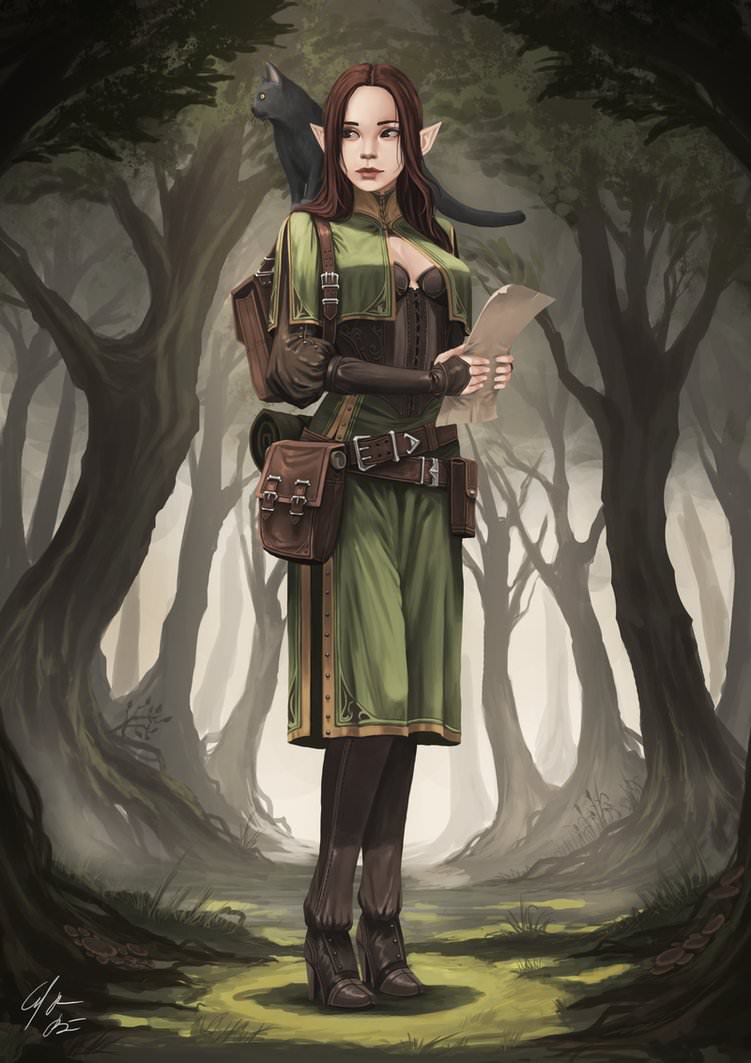
Jack Weighill's
Homebrew
Compendium
Hello players and GM Binder devs! You've found the back page of a class from my class compendium. Not all of this work is mine, in fact, most of it isn't! It is simply here for ease of access for the players, and isn't shared elsewhere.
Originally called the adept (like the subclass that exists today), the scholar was one of the first classes I added to the game, alongside Gunslinger and Astromancer.
The scholar as always been strange to balance, in an odd and awkward fashion that can make it seem much too weak and way to strong at the same time. I think that I've reached a suitable middleground now though, so that's good.